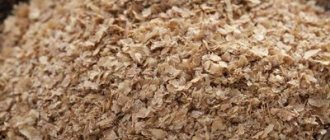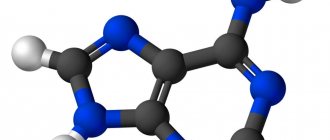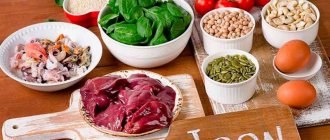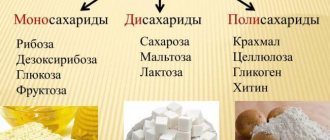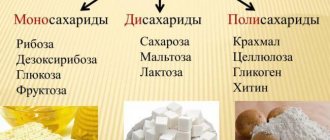What is magnesium needed for?
Scientists have calculated that magnesium is involved in 300 biochemical processes that occur in the body. Deficiency and excess of this element lead to deterioration of health and well-being.
This element affects the normal functioning of the heart and blood vessels. It normalizes blood pressure. Magnesium is required to maintain muscle function.
The effect of magnesium on the functioning of the body:
- removes waste and toxins;
- required for regeneration;
- necessary for cell renewal;
- calms the nervous system;
- improves intestinal motility;
- reduces neuromuscular tension;
- necessary for protein synthesis;
- removes cholesterol;
- promotes the separation of bile.
Thanks to magnesium, vitamins and minerals are better absorbed by the body. For example, if there is a deficiency of magnesium, calcium is less absorbed.
Magnesium for children
A child's growing body needs magnesium.
Often parents do not suspect that inattention and problems with memorizing material at school are associated with a lack of magnesium in the body. Bad behavior, tantrums, conflicts, and depression may be indicators of magnesium deficiency. In adolescence, many tend to associate mood swings with the transition period. But these may also be symptoms of an insufficient amount of a useful element in the body.
Bran for a beautiful figure
Sesame bran is only slightly inferior in magnesium reserves to sesame bran. And it doesn’t matter whether they are wheat, rye, oatmeal or rice. First of all, they are valued for their high fiber content, which improves intestinal motility. As a result, nutrients are absorbed much more efficiently, including magnesium. Dietary fiber works like a sponge that absorbs toxins and gently removes them from the body. Another important property of bran is its low glycemic index. This means they lower blood sugar and normalize cholesterol levels. For those who are actively losing weight for the holidays, this is an absolutely priceless find. After all, bran dulls appetite and creates a long-lasting feeling of fullness throughout the day.
Granulated bran can be added to natural yogurt or cereal - you will get a hearty, balanced breakfast. You can pour bran into a bowl of soup, replacing bread or crackers with it. Loose bran is a perfect addition to smoothies and healthy baked goods.
Daily intake of magnesium
How much magnesium does a person need to maintain normal health? It all depends on age and the functioning of internal organs. In stressful situations and depression, more magnesium is required.
With any physical or emotional overload, the need for the element increases.
Scientists give average figures that give an idea of how much of this element a person needs.
Requirement for the element magnesium, per 24 hours:
| category, age | quantity, mg |
| men under 35 years old | 390 |
| men over 35 years old | 240 |
| teenagers 14-18 years old | 400 |
| women during lactation | 360 |
| pregnant women | 320-450 |
| women under 35 years old | 310 |
| women over 35 years old | 320 |
| children 10-14 years old | 270 |
| children 6-10 years old | 170 |
| children 3-6 years old | 120 |
| children 1-3 years old | 80 |
| newborns | 40-60 |
Athletes require the greatest amount of magnesium during active sports. In these cases, magnesium will require about 600 mg. If the element is missing in old age, Alzheimer's disease may develop.
Magnesium deficiency occurs in 10-15% of the entire world population.
Almonds against fatigue
A large amount of magnesium is found in hazelnuts, cashews, peanuts, pistachios, and pine nuts. Almonds deserve special mention. About 60% of the daily requirement of magnesium is hidden in its kernels. In combination with other minerals, it constantly maintains muscle tissue in tone. Therefore, if you want to relieve fatigue after a tiring day at work or quickly recover after a workout, it is enough to eat 8-10 almond kernels. By the way, it will also be useful for the brain. The complex of minerals in this nut increases concentration, attention and memory. Recent studies have shown that active substances, which are most abundant in the thin skin, increase resistance to colds.
Almonds are best eaten in their pure form. This is an excellent hearty snack that will charge your body with energy and vitamins. Nuts can also be added to yoghurt, kefir or cottage cheese. Just be careful, because almonds are a real calorie bomb.
Products containing magnesium
The natural question is, what foods contain magnesium? Most of the food we eat daily contains this element.
Table of magnesium content in products, per 100 g:
| the product's name | amount, in mg |
| wheat bran | 590 |
| pumpkin seeds | 520 |
| cocoa powder | 480 |
| sunflower seeds | 370 |
| coffee | 320 |
| chocolate | 300 |
| black caviar | 300 |
| cashew nuts | 270 |
| pine nuts | 270 |
| watermelon | 230 |
| peanut | 210 |
| seaweed | 170 |
| oat flakes | 160 |
| walnuts | 160 |
| rice | 140 |
| pearl barley | 130 |
| dried apricots | 110 |
| buckwheat | 100 |
In addition, less than 100 mg is found in spinach, raisins, dates, corn, bananas, beets, cottage cheese, potatoes and other products.
Broccoli pesto sauce
Ingredients:
- broccoli – 1 pc.
- basil – 150 g
- lemon – 1/2 pcs.
- hazelnuts – 125 g
- garlic – 2 cloves
- olive oil – 125 g
- water – 2 tbsp. l.
- salt and pepper - to taste
Place all ingredients in a blender and grind. Serve as a dip or as a topping for pita rolls.
Ingredients for one serving:
- coconut milk – 250 g
- sprouted almond oil – 80 g
- peeled banana – 1 pc.
- cocoa powder – 2 tbsp. l.
- ice cubes – 500 g
- stevia - to taste
Place all ingredients in a blender and blend to desired consistency.
Buckwheat for a healthy heart
A large amount of magnesium is found in everyday foods such as cereals. Buckwheat especially stands out among the rest, as it contains half the norm of the macronutrient we need. The flavonoids in its composition, together with magnesium, strengthen the walls of blood vessels, making them more elastic and less permeable. In addition, it thins the blood and reduces the risk of blood clots.
Another group of active substances stimulates the thyroid gland. The nervous system also receives good nutrition, so it is easier to cope with emotional overload and stress.
If boiled buckwheat has become boring for a long time, add an appetizing fried onion and carrot to it. You can also simmer the grains in broth to make a delicious side dish for meat or poultry. But you shouldn’t pour milk over buckwheat, since calcium interferes with the proper absorption of iron, which this cereal is also very rich in.
Symptoms of excess magnesium in the body
Although magnesium is not a toxic compound, its excess is just as harmful to human health as its deficiency. It is impossible to get excess magnesium from food, but excessive consumption of magnesium-containing drugs can have a bad effect on your well-being.
Also, the cause of excessive accumulation of the substance can be a violation of mineral metabolism. An excess of this chemical element can lead to such disorders and pathologies as arthritis and polyarthritis, psoriasis, dyslexia, hyperfunction of the thyroid gland, deposition of calcium salts in the kidneys and others.
Among the main symptoms of magnesium excess are:
- Lethargy and increased drowsiness.
- General weakness, loss of strength, lethargy.
- Digestive disorders (loose stools), prolonged nausea, dry mouth.
- Decreased performance.
- Loss of coordination, unsteady gait.
Thus, consuming foods that contain a lot of magnesium can both help the body, but also harm it. Be careful and healthy!
Chickpeas for strong immunity
Legumes can also be called champions in magnesium content. Among them, we are primarily interested in chickpeas. It is the richest source of vegetable protein, rich in essential amino acids. In the body, they perform a variety of functions - regulate the production of hormones, maintain joint tone, improve blood composition, stimulate the liver and prevent fat from being deposited in its cells.
In addition to magnesium, chickpeas contain a huge amount of potassium and some ascorbic acid. This combination strengthens the immune system well and makes it easier to cope with colds. Together with selenium, magnesium improves brain function and protects it from age-related changes.
Boiled chickpeas can be added to salads with fresh vegetables, herbs and even some fruits. Chickpeas can be used to replace lentils and split peas in soups. It even makes original desserts like vegetarian sweets. Of course, without these beans you can’t make the famous Middle Eastern snack hummus.
Oatmeal for excellent digestion
Since we're talking about porridges, we can't ignore oatmeal. Only it should be cooked from Hercules oatmeal. Instant cereals contain significantly less magnesium. In combination with calcium and phosphorus, magnesium actively nourishes and tones muscle and bone tissue. It is not for nothing that children are recommended to eat oatmeal for breakfast during the period of active growth. The circulatory system also has its advantages. Its high level of iron makes it indispensable for the prevention and treatment of anemia.
Oatmeal, among other things, contains a lot of soluble fiber, which helps improve digestion. In case of any malfunctions, doctors advise leaning on oatmeal. You need to cook it with a lot of water so that the consistency is like jelly. Then the desired effect can be achieved faster. Nutritionists advise replacing ground oatmeal with wheat flour in baked goods. You can also use them to make healthy energy bars with dried fruits and nuts.
Why are these elements so important?
Potassium and magnesium are the most important components both for the most important human organ - the heart, and for the functioning of the cardiac conduction system (CCS).
Main functions of the PSS:
- Automaticity is the ability of the heart muscle to rhythmically excite and contract without an external stimulus, under the influence of the generation of stimuli from the nodes of the PPS.
- Conductivity is the ability to conduct impulses from the point of their generation to the underlying sections along the contractile elements to the atria and ventricles.
- The function of excitability is the ability to respond to endogenous and exogenous factors of irritation with the formation of active activity from a state of rest.
The correct operation of these processes is carried out due to a well-coordinated biomechanism at the cellular level between the ions of potassium (K+), sodium (Na+), chlorine (Cl-) and magnesium (Mg++).
Signs of magnesium deficiency in the body
Recognizing micronutrient deficiency on your own can be difficult, since its symptoms are quite similar to those of many other diseases. Therefore, it is important to undergo an examination and do a blood test to determine the level of magnesium in the blood serum before starting to use magnesium supplements.
The causes of magnesium deficiency may be the following:
- Lack of supply with food and water.
- Abuse of alcohol, coffee and black tea.
- Diabetes and obesity.
- Digestive and kidney disorders.
- Severe stress, pregnancy.
- Frequent consumption of fatty, salty and sweet foods.
- Long-term use of diuretics and anti-inflammatory drugs.
Symptoms indicating that there is insufficient magnesium:
- Deterioration of the condition of nails and teeth, brittleness and hair loss.
- A constant feeling of fatigue that does not go away even after good sleep and rest.
- Fatigue and weakness.
- Muscle cramps.
- Inattention, memory impairment.
- Nausea, dizziness, tachycardia.
- Frequent colds and exacerbations of chronic diseases due to decreased immunity.
- Irritability, attacks of unreasonable fear and anxiety, bad mood.
- Involuntary twitching of the muscles of the face and eyelids.
It is a lack of magnesium that most often causes high blood pressure, and magnesium deficiency has been identified in 80% of people suffering from heart disease.
Such symptoms indicate that you should definitely include more foods with magnesium in your daily diet.

